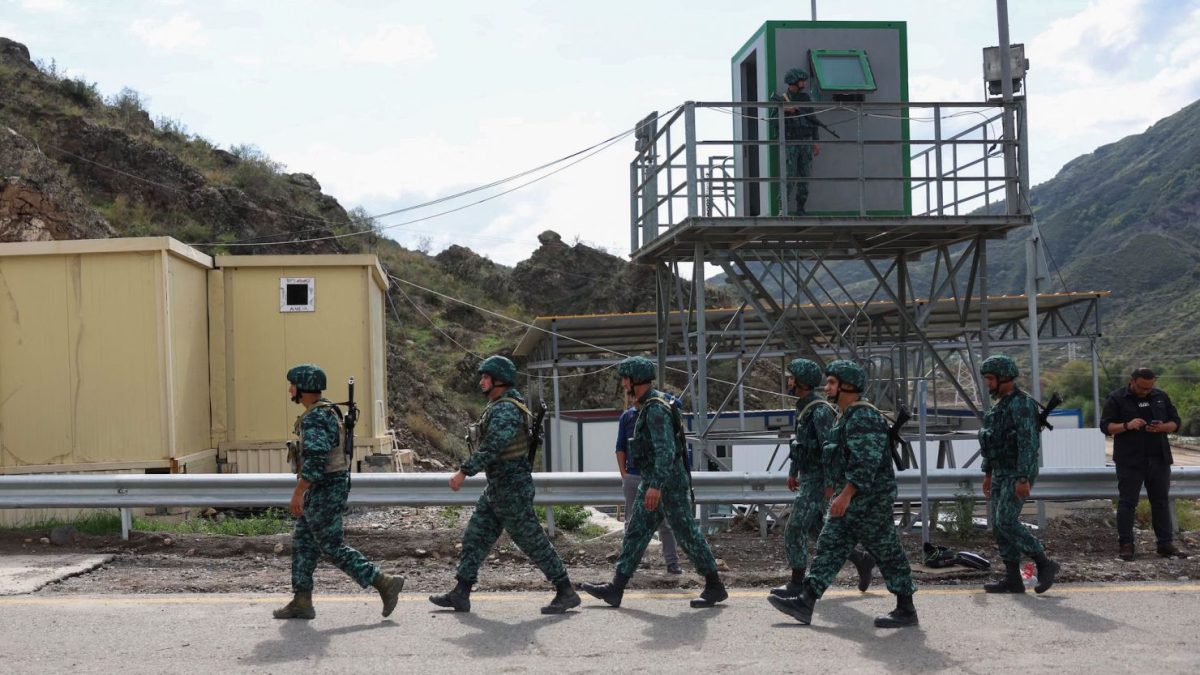Armenia and Azerbaijan are two neighboring countries with a long history of tension and conflict. While both are relatively smaller in size compared to their neighboring countries of Russia, Iran and Turkey, the two nations have caused a great deal of bloodshed on both sides over a small portion of land they both feel belongs to them.
The Nagorno-Karabakh region is an area that has seen ongoing conflict for the past three decades. Within the Azerbaijani Soviet Socialist Republic, the Soviet Union created the Nagorno-Karabakh Autonomous Oblast in 1923. The region was home to a population that is 95 percent ethnically Armenian. Despite Nagorno-Karabakh’s nominal status within Azerbaijan, the regional assembly of that territory approved a resolution in 1988 stating its wish to join the Republic of Armenia. During Soviet authority, armed conflict between the two republics—which have a long history of ethnic tension—was mostly contained. Nonetheless, regional peace ended along with the fall of the Soviet Union.
Following Azerbaijan’s two-day takeover in September 2023 inside an Armenian enclave’s borders, thousands of refugees have made their way into Armenia in an attempt to end the conflict that has sparked two wars since the Soviet Union’s fall. 19,000 people who had been forcibly displaced from Nagorno-Karabakh had entered Armenia by Sep. 26, according to the Armenian administration.
In a speech on Sep. 24, Armenian Prime Minister Nikol Pashinyan warned that unless “effective mechanisms of protection” were established in the enclave governed by Azerbaijan, Armenians in Nagorno-Karabakh faced “the threat of ethnic cleansing.”
The reunification of Azerbaijan with authority over the enclave of Nagorno-Karabakh is expected to transform the balance of power in the South Caucasus, an area that has long been at the intersection of Russia, Turkey, and Western nations’ geopolitical agendas.
Azerbaijan, according to the prime minister of Armenia, is preparing for a “full-scale war.” In the meantime, the president of Azerbaijan restated his demand that Armenia amend its constitution and turned down any offer to serve as a mediator in the peace negotiations. Pashinyan stated he thinks Baku, the capital of Azerbaijan, is preparing for an invasion in the wake of the most recent escalation on the border with Azerbaijan on Feb. 12 through 13, which resulted in the deaths of four Armenian soldiers. He stated the following about Azerbaijan’s rejection of Armenia’s most recent border delimitation/demarcation proposals at a cabinet meeting on Feb. 15: “Our analysis shows that there can only be one reason for this, and the reasons could be their intentions to launch military operations in some areas of the border with the aim of turning it into a large-scale war against the Republic of Armenia.”
“This intention can be read in all statements and actions by Baku,” he concluded.
In the most recent instance, Azerbaijan claimed that on Feb. 12 one of its soldiers was wounded when gunfire from an Armenian army position in the southern Syunik region struck its troops. Armenia refuted the charge. The next day, Azerbaijan initiated what it referred to as a “revenge operation,” intensely firing on the same Armenian station for four hours, killing four troops and injuring another. Despite their differences, Yerevan and Baku decided on a prisoner exchange in January without the need for official outside involvement.
Speaking on Feb. 14 as he took office for a fifth term as president of Azerbaijan, Ilham Aliyev declared that intermediaries in the peace negotiations should not be involved.
“I think that the process of normalization of Azerbaijan-Armenia relations should be dropped from the international agenda. Because everyone seems to want to deal with this issue. Mind your own business!” stated Aliyev. He intensified his demand that Armenia amend its constitution in the same speech.
“Armenia and those supporting it militarily should understand that nothing can stop us. If territorial claims against us are not abandoned, if Armenia does not bring its legislation into order, of course, there will be no peace treaty. This once again suggests that building an army and strengthening military potential is the primary objective.”
Armenians’ already-existing worries of an Azerbaijani invasion have been made worse by the border violence and the increasing rhetoric from Azerbaijan. More specifically, there is concern that Baku may try to impose force in order to get its demand—which is for an extraterritorial corridor that would link the Nakhchivan exclave with mainland Azerbaijan—fulfilled.








